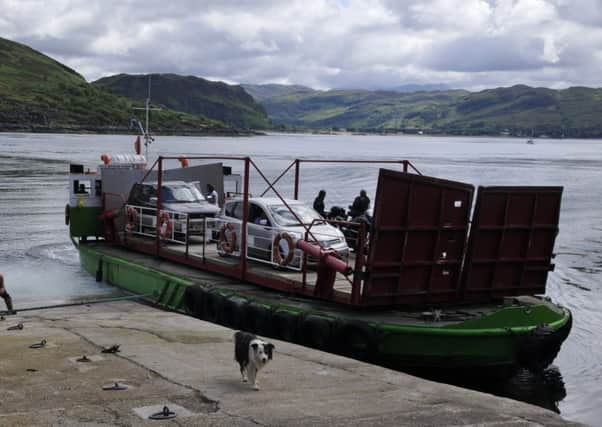Paul Bancks: taking the edge off coastal living


A recent report has concluded that coastal communities are among the UK’s worst off for earnings, employment, health and education.
The Social Market Foundation said the economic gap between coastal and non-coastal places across the UK has grown over the past two decades, highlighting an issue that can be easily overlooked by those who associate the coast with summer holidays and day trips.
Advertisement
Hide AdAdvertisement
Hide AdTourism is indeed a vital industry, particularly for small communities without any other major economic infrastructure.
In recognition of this, an industry-led partnership including our predecessor – the Crown Estate – produced a framework for Scotland’s marine tourism sector in 2015, entitled Awakening the Giant, and set out the aim of growing the sector by 25 per cent by 2020.
Crown Estate Scotland is committed to playing its part in achieving this ambitious goal and, as manager of foreshore and seabed around Scotland, we play a key role in helping communities to realise opportunities.
This can include help to form voluntary moorings associations or to install community pontoons, or in some cases, to sell foreshore where circumstances allow.
Our predecessor organisation, the Crown Estate, provided funding and expertise to develop numerous projects across Scotland designed to provide economic opportunities and create social benefits.
Many of these, such as at Leverburgh on the Isle of Harris, have spawned other projects and acted as a catalyst for broader community action.
What our work alongside communities has shown is that there is a willing and determined network of people throughout Scotland who want to share their ambitions for their local areas.
Many of these ambitions extend to their costal waters and so we are looking for more opportunities and ways to enable local management, where appropriate.
Advertisement
Hide AdAdvertisement
Hide AdAlthough Crown Estate Scotland is a new entity, it is built upon a history of sustainable management and a culture of stewardship and community involvement.
We are exploring ways in which to extend this community engagement approach across all areas of our business, to encompass the wider communities that rely upon the assets we manage and to ensure we are part of the mix that helps them to thrive.
At Crown Estate Scotland, we have a significant role in the marine environment by supporting aquaculture, marine leisure, ports and harbours and offshore renewable energy.
We treat projects on a case-by-case basis when setting rent levels and take account of the particular needs and circumstances of island and coastal communities.
For instance, we maintain a 10 per cent discount on rents for finfish and shellfish producers on Shetland, Orkney and the Western Isles.
We have a responsibility to listen to and understand the challenges facing our tenants and partners.
Our board recently met in Helensburgh and Shetland as part of a commitment to hear first-hand from local businesses and community representatives.
We are in the process of asking tenants, businesses and other bodies for feedback – through surveys and research – to ensure our activities reflect their wider interests.
Advertisement
Hide AdAdvertisement
Hide AdThe Social Market Foundation’s report has identified an issue with prosperity and opportunity for coastal communities and at Crown Estate Scotland we will play our part in helping to close these gaps by continuing to listen, adapt and deliver.
Paul Bancks is asset manager at Crown Estate Scotland.